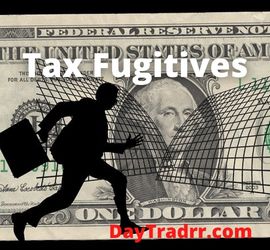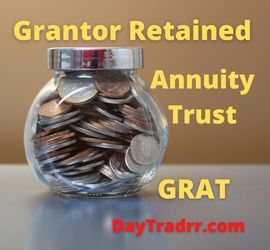Tax Fugitives – Eight Notorious Tax Evaders

Tax evasion is the avoidance of paying taxes through illegitimate means. Typically, tax evasion techniques involve an individual or organization lying to the Internal Revenue Service about their income. Money laundering penalties may be levied against those who attempt to report their revenues as coming from a legitimate source. Any of these activities can turn otherwise legitimate businessmen or celebrities into tax fugitives.
Who doesn’t want to save money on their taxes? Tax avoidance is one thing, but income tax evasion is quite another. Tax evasion happens when a person or company employs illegal means to avoid paying taxes. On the other hand, tax avoidance occurs when a person or company utilizes legal means to reduce the amount of taxes owed. Well-known tax fugitives devised innovative (and unlawful) schemes to avoid paying their debts. Learn how much they owed and how they were apprehended.
Although the majority of Americans file their tax returns diligently and honestly, not all taxpayers are as law-abiding. Some rich taxpayers cheat because they believe they already pay too much in taxes. Others believe the entire tax system is illegitimate. Whatever the reason, when the rich and famous become tax fugitives and are convicted of tax offenses, it makes headlines. You’re probably familiar with at least one or more of the well-known names on this list of notorious tax evaders.
Celebrity Tax Fugitives
Wesley Snipes

The “Blade” star was originally charged with multiple crimes by federal prosecutors. Among them, he was accused of hiding money in overseas accounts and failing to file federal tax returns for several years. The actor’s federal tax debt was thought to be in the $12 million range. Nevertheless, Snipes was found not guilty on the most serious accusations leveled against him. In 2008, the star was found not guilty on two felony charges of conspiracy and fraud for filing a false claim for a $7 million refund. He was also acquitted on three misdemeanor charges. However, he was found guilty of three lesser offenses of neglecting to file tax returns.
In a successful defense, Snipes was depicted as a well-intentioned victim of faulty advice who was only probing the IRS about his tax liability. Still, the actor was given a three-year jail sentence. This was significantly less than the maximum sentence of 16 years in prison if convicted of the felony charges. Douglas P. Rosile, his accountant, and Eddie Ray Kahn, a tax protester, were named as co-defendants. Rosile received a four-and-a-half-year sentence. Kahn was given a ten-year sentence. (Sources: justice.gov & bernhoftlaw.com)
Willie Nelson

The singer and actor is still considered one of the ten most famous tax fugitives of all time. It turns out the musician was investigated by the IRS in the late 1980s for a phony tax shelter, which was eventually disallowed. The decision resulted in a whopping $16.7 million tax liability. Nelson’s counsel later negotiated a decreased settlement in the amount of $6 million. However, Nelson still couldn’t make the payments to the IRS’ satisfaction. To pay his back tax bill, the IRS invaded his home in 1990 and took vast amounts of his personal items. They took gold records, clothing, and a variety of other items. Someone else might have become depressed and given up. Willie, on the other hand, filed for bankruptcy and accepted it cheerfully. The singer even signed autographs for cash outside the IRS facility to pay toward his obligations.
Then he did something totally unexpected, yet effective. Nelson published a new record. “Who Will Buy My Memories” was the title of the album, and it did well. The IRS later agreed to an unusual revenue-sharing agreement with Nelson. A portion of the earnings from a new album would go toward paying down his tax obligation. Fans, on the other hand, didn’t merely buy the record. They took the album’s title literally, and Nelson’s fans purchased back his property at IRS auctions. Then, in a heartwarming twist of fate, they returned the items to the beloved singer out of respect and admiration. Of course, he didn’t get it all back. Nonetheless, enough of the belongings were repurchased to clearly demonstrate that America adores him. (Source: moneyinc.com)
Tax Fugitives in Sports
Pete Rose

One of baseball’s most recognizable faces is Peter Edward Rose. He still has the most records of any player in the sport’s history. His name is etched across the record books, but not in the place that matters most to him: the Baseball Hall of Fame. He was a three-time World Series champion, a six-time World Series participant, and a member of 17 All-Star teams when he retired. However, Rose had bet on baseball, including 52 games involving the Reds while he was a player and manager, according to the official findings and investigations. As a result, Pete Rose was given a lifetime ban from baseball.
1990 was even worse. Rose admitted to failing to declare $354,968 in earnings from signature and memorabilia sales and personal appearances for the four years beginning in 1984. Thus, resulting in a $162,000 tax underpayment. Rose could have done serious time for the charges as each offense carried up to 3 years in prison. However, he received just a five-month prison sentence. Additionally, he was fined $50,000, and ordered to pay back taxes and interest. The superstar was also required to spend three months in a halfway house and perform 1,000 hours of community service. (Source: forbes.com)
Organized Crime Tax Fugitives
Al Capone
This mobster has been linked to a number of illicit activities, including bootlegging, prostitution, and murder. However, Al Capone was only incarcerated for one unlawful act: income tax evasion. The Chicago Mob generated an estimated $100 million in annual earnings during Capone’s leadership. However, revenue generated through illicit acts is liable to taxation. This is due to the elimination of the word “lawful” from the 16th Amendment in 1916. Criminals like Al Capone were forced to choose between confessing to breaking the law and filing legal taxes, or cheating on taxes and risking being imprisoned for tax evasion. Capone chose the latter and was convicted of tax evasion. He was sentenced to 11 years in prison and required to pay fines and the outstanding tax due.
The United States Treasury Department was gathering evidence on tax evasion accusations against the Chicago Mob. The investigation included Al Capone’s brother Ralph “Bottles” Capone, and other mobsters. Al Capone pled guilty to tax evasion and prohibition offenses on June 16, 1931. He then boasted to the public that he had negotiated a two-and-a-half-year sentence, but the presiding judge told him that he, the judge, was not bound by any agreement. In response, Capone then entered a not guilty plea.
Nevertheless, Capone was convicted and sentenced on November 24, 1931, to eleven years in federal prison. He was further ordered to pay a $50,000 fine, and $7,692 in court expenses, in addition to $215,000 in delinquent taxes plus interest. Concurrently, a six-month contempt of court sentence had to be served. Capone was imprisoned in the Cook County Jail while awaiting the outcome of his appeals. Ultimate;y, his appeals were denied. He was sent to the United States Penitentiary in Atlanta and served out his term there as well as at Alcatraz. (Source: fbi.gov)
Heidi Fleiss
Heidi Fleiss rose to prominence in the 1990s following a high-profile arrest for running a high-end prostitution network. Fleiss is now known as the “Hollywood Madam.” She was criminally charged not only for her lewd occupation but also for income tax evasion and money laundering. Fleiss was arrested and charged with five counts of pandering on June 9, 1993. She was found guilty on three charges by a jury and sentenced to three years in prison. That conviction was reversed in 1996. However, the following year, a federal tax evasion conviction resulted in a 20-month sentence to be served in a Dublin, California prison. The Madam also had to pay back taxes and penalties and fines. (Source: hollywoodreporter.com)
Businessmen (and Women) Tax Fugitives
Leona Helmsley
Mrs. Helmsley rose to prominence after marrying Harry B. Helmsley, New York’s preeminent real estate investor and broker in 1972. However, her promotion as president of the Helmsley hotels in 1980, gave her real power. Federal and state officials charged Harry and Leona Helmsley with defrauding the government of more than $4 million in income taxes. It was alleged they did this by falsely classifying personal expenses as business costs. In 235 counts in state and federal indictments, Harry and Leona were accused of draining their hotel and real estate empire for personal gain. Leona was also accused of cheating Helmsley stockholders by obtaining covert consultancy fees of $83,333 per month. Harry Helmsley, was 80 years old with memory and reasoning problems. As a result, he was declared mentally unfit to stand trial.
Leona Helmsley was tried in a case that drew widespread attention. A former Helmsley housekeeper testified that Mrs. Helmsley once told her, “Only the little people pay taxes,” which became one of the most famous lines of testimony. Leona Helmsley was found guilty of evading $1.2 million in federal income taxes after a two-month trial in Federal Court. Mrs. Helmsley was sentenced to four years in jail and fined $7.1 million by Judge John M. Walker for tax evasion. She also had to pay $1.7 million in overdue taxes to the federal and state governments. Mrs. Helmsley began serving her sentence in 1992 in a federal prison in Connecticut. However, she was released in 1994 after serving 18 months. She went on to serve one month in a halfway house in mid-Manhattan, and two months in the opulent confines of her Park Lane Hotel penthouse residence. (nytimes.com)
Dennis Kozlowski
During the booming stock market in the late 1990s, Dennis Kozlowski was the CEO of Tyco International. Kozlowski flaunted his wealth like many of his contemporaries at the time. However, it was his inability to pay taxes on 12 paintings by artists like Claude Monet that culminated in a tax evasion indictment. Unfortunately for Dennis, the indictment for dodging 8.25 percent sales tax on $14 million in artwork prompted a larger Tyco internal inquiry. New criminal accusations were brought against him, and he was found guilty of accepting unlawful bonuses, exploiting corporate loan programs, manipulating data, and conspiracy. So, even after paying his tax debt, Kozlowski was sentenced to prison for stealing more than $600 million from his company with the help of an associate. Mr. Kozlowski was sentenced to prison as well as having to pay $167 million in reparations and fines. (Source: nytimes.com)
Walter Anderson
Walter Anderson’s case is the largest tax evasion case in American history. This former telecommunications executive was accused of using aliases, offshore bank accounts, and shell businesses to conceal his earnings. Anderson rose to prominence as a result of his notorious tax avoidance tactics. Simply put, he tried to hide a large percentage of his earnings in a maze of offshore shell companies and accounts. To this day, the IRS has never managed to fully expose the web entirely. Walter Anderson was sued by the Justice Department in 2005 for concealing his personal income as business income in the British Virgin Islands and Panama. He was said to have made half a billion dollars but never filed taxes on it. He was quickly apprehended and went on trial in 2006, pleading not guilty to the charges.
Anderson eventually acknowledged concealing $365 million in income during the 1990s. He was fined $400 million and sentenced to nine years in prison. However, he only served two and a half years in federal prison before being released on house arrest for the remainder of his sentence. Due to a typographical error in his plea deal that was prepared by someone in the government, a federal district judge found that Walter Anderson did not have to pay $100 to $175 million of his $400 million punishment. (Source: goldentaxrelief.com)
Up Next: Selling Short Against the Box
 Short-selling securities owned by an investor without completing his long position is known as selling short against the box. Gains on equities are countered by losses, resulting in an investor’s neutral position. According to the IRS, selling short against the box is mostly done to avoid paying taxes.
Short-selling securities owned by an investor without completing his long position is known as selling short against the box. Gains on equities are countered by losses, resulting in an investor’s neutral position. According to the IRS, selling short against the box is mostly done to avoid paying taxes.
Historically, investors would hold securities and stock certificates in a safety deposit box. This is where the term “selling short against the box” originates.
In other words, shorting stocks that you already possess without closing out your long position is known as selling short against the box. As a result, all gains in a stock are equal to all losses, resulting in a neutral position. Typically, the goal is to avoid incurring capital gains exposure from a transaction that is about to close. To discourage this, the practice has been regulated by the tax authorities. For example, if you possess 100 shares of AAPL and tell your broker to sell them short, you’ve just completed a short sale against the box. You carry the long position in one account and the short position in another.




